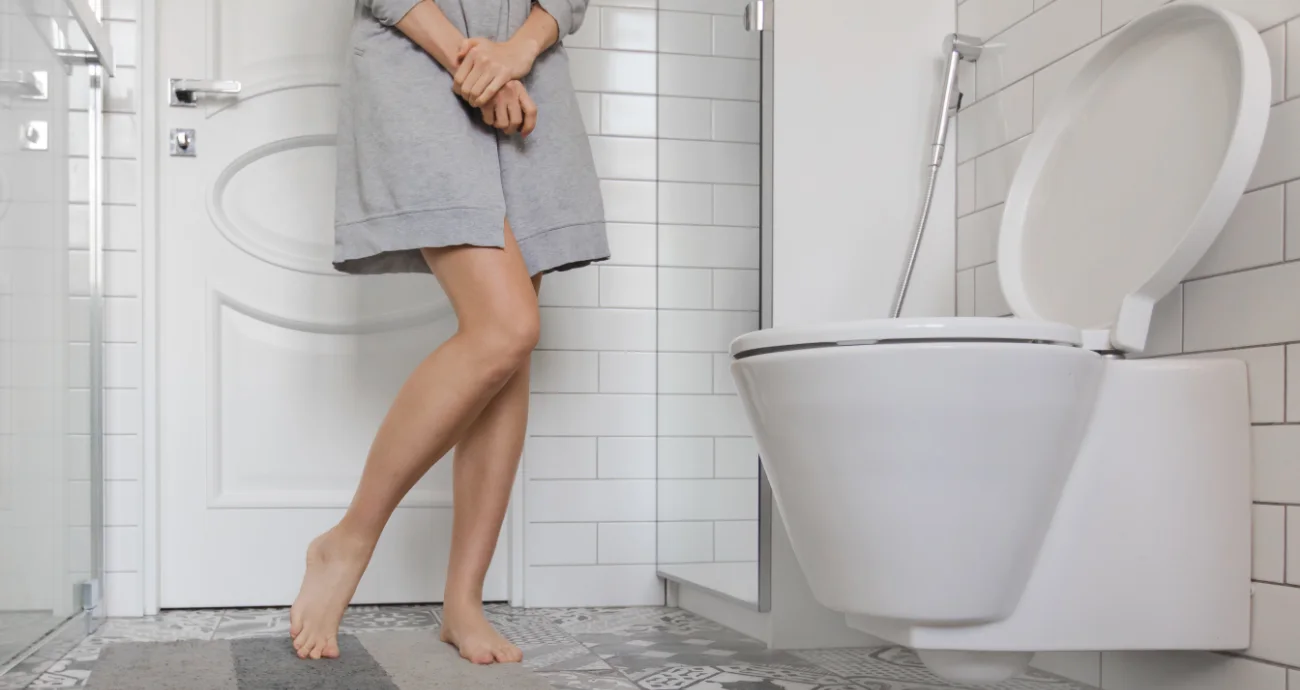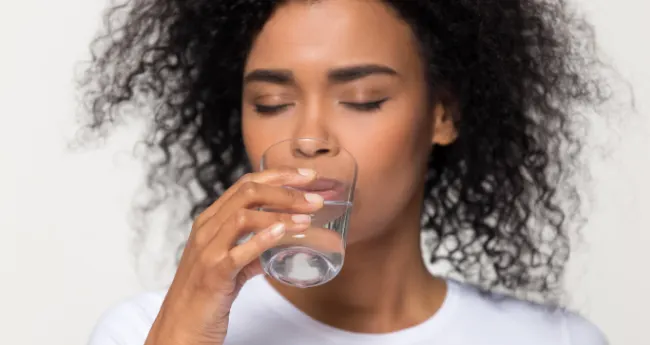Diarrhea during periods - Causes, treatments, and prevention

Ever wondered whether it’s a mere coincidence that you have diarrhea during periods? Well, it’s not something that happens by chance, period diarrhea is a thing. If you too have been questioning yourself every month, “why do I get diarrhea during my period?” you’re not alone. Many women experience it and, in this article, we will try to understand this condition and ways to manage it better.
What is period diarrhea?
Many people have mild, manageable digestive distress related to their menstrual cycle, similar to Pre-Menstrual Syndrome (PMS). For others, it can be more severe. The hormonal changes that make your uterus contract and cause shedding of its lining can also affect your digestive system. Which is why it’s normal to have diarrhea before and during your period.

Why do I get diarrhea before my period?
It all happens due to hormonal changes in your body. Every month, right before you get your periods, fatty acids, known as prostaglandins, begin to relax the smooth muscle tissues inside your uterus. This relaxation helps in shedding its lining.
Prostaglandins also assist in certain other functions in the body, such as:
- muscle contractions
- blood vessel dilation and constriction
- blood clotting
However, the flip side is that those same prostaglandins can also have a similar impact on your bowels. When the levels of prostaglandin are high, some of it may enter the bloodstream. They can then travel to various parts of the body, including your bowels.
Much like the uterus, bowels have a smooth lining of muscle. A higher level of prostaglandins can cause the bowels to contract and release their contents. This leads to more bowel movement and even diarrhea, along with a host of other gastrointestinal symptoms.
Apart from diarrhea, excess prostaglandins are also responsible for other period-related symptoms, including:
- cramps
- headaches
- nausea
- vomiting
Endometriosis and GI symptoms during menstruation
Endometriosis is a condition where tissue similar to the lining of the uterus grows outside the uterus in areas such as ovaries, fallopian tubes, area around the uterus, vagina, cervix, bladder and bowel. Typically, GI symptoms such as diarrhea, intestinal cramping, constipation, and painful bowel movements are known to be very common when you have endometriosis. These symptoms typically worsen during menstruation.
Tips to manage diarrhea while on period

If you’re prone to having bouts of diarrhea during your periods, here are a few tips to help you manage and ease the symptoms:
- Keep yourself hydrated by drinking plenty of fluids. This is important in order to prevent dehydration. One should drink liquids throughout the day, and should drink an extra cup of water after each bout of diarrhea.
- Consider having a liquid diet instead of consuming only solids. This will help in providing some rest to your bowels.
- Switch to eating smaller meals more frequently as it will help your body digest the food easily.
- Increase intake of pectin-rich foods such as applesauce, bananas, and yogurt. Pectin is a water-soluble fiber that can help to reduce diarrhea.
- Eat plenty salty foods as it helps in replacing lost sodium and retains more water.
- Maintain intimate hygiene to avoid infection with habits such as wiping front to back when using the washroom, wearing loose, cotton undergarments and using good quality period products. Try the ALWAYS Cotton Soft pads that come with real cottony softness. They are flexible and well-fitting and are designed with a soft cover that is gentle on your skin and offers ultimate protection. Its flexi channels ensure that you don't feel any discomfort when you're on the move.
Always check with your doctor before incorporating any changes in your diet or taking any medication.
In addition to the above, you should also avoid foods that can potentially irritate the digestive tract and worsen diarrhea. Foods such as caffeine, alcohol, carbonated drinks, foods that are very hot or very cold, greasy foods, dairy products, etc. must be avoided. You could also start eating more fiber a few days before your period. Fiber adds bulk to your stool, making it more solid.
Prevention for period diarrhea

If you want to manage menstrual symptoms efficiently in the long run, you may need to make important lifestyle choices. By incorporating certain dietary and lifestyle tips you can better manage gastro-intestinal and other menstrual symptoms.
- Maintaining a regular exercise routine is beneficial during periods. Yoga, swimming, jogging etc. are great at staying healthy and increases the heart rate.
- Restrict consumption of foods and drinks that contain caffeine, salt, or sugar for a couple of weeks before a period. This may help in reducing PMS symptoms.
- Maintain a regular, good-quality sleep cycle. Aim at getting 8 hours of sleep each night.
- Indulge in activities such as yoga or some hobby that will help reduce stress and anxiety. This may help in easing stress-related GI symptoms.
- Stay prepared for your period at all times with a good stock of ALWAYS sanitary pads in your bag.
When to see a doctor
Having period diarrhea occasionally is completely normal. However, if it’s starting to hinder your daily routine, there could be an underlying issue. Consult your doctor if you notice any of the below symptoms:
- diarrhea or other GI symptoms that last for more than two days
- pain or cramping in the stomach or pelvis that’s hard to control with OTC medicines
- stool with visible mucus
If you experience period diarrhea, following the above-mentioned guidelines will help in managing the symptoms. However, any severe symptoms during or before a period may direct to an underlying health condition. Remember to monitor the symptoms and then consult them with your doctor.
Read more about period symptoms and what causes period pains.
Stay well prepared for your next period by tracking it on Always Period Calculator.
Disclaimer:
Please note the date of last review or update on all articles. No content on this site, regardless of date, should ever be used as a substitute for direct medical advice, diagnosis or treatment from your doctor or other qualified clinician. Always is committed to ensuring that all of our products meet rigorous safety standards; Always pads prioritize safety, protection and comfort of its consumers.




